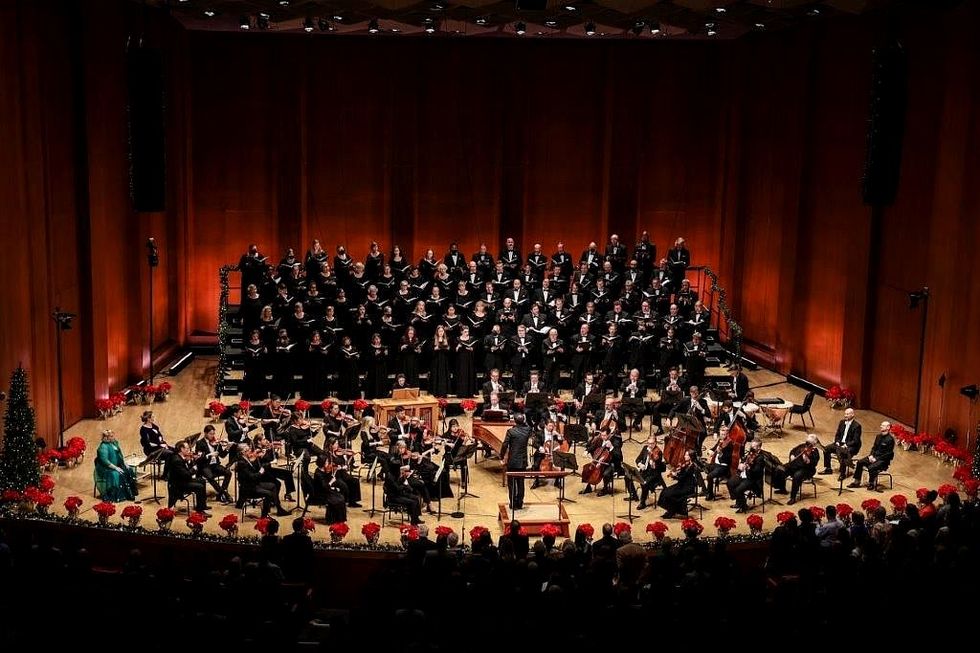No tweeting, just reading
Novelist Nicole Krauss brings her Great House to Houston for Inprint seriesopener
Novelist Nicole Krauss, author of the award winning The History of Love and the recent National Book Award finalist, Great House, is one half of what could arguably be The American literary power couple. Though no one has of yet given Krauss and her husband novelist, Jonathan Safran Foer, their own obnoxious couple monicker (Nicathon? Foeuss?), they’ve reached a level of literary celebrity so that even their real estate and reproductive collaborations become news.
On Monday, Houston will have a chance to meet the Krauss when she, along with acclaimed novelist and nonfiction writer Francisco Goldman, open the 31th season of the Inprint Margarett Root Brown Reading Series. In a preview to her appearance, Krauss talked with CultureMap about her love of the novel form and some of the mysteries inside this Great House.
Great House is a novel that at first glance seems like a collection of unrelated stories told by multiple voices across many different countries and decades. These characters appear to have little relation to each other, except for perhaps being tangentially linked by a large monster of a writing desk.
Unlike some noted contemporary literary writers, Krauss does not maintain much of an online presence. They’ll be no tweeting for her. And this is perhaps one reason that she has come to love doing readings.
Some of the voices testifying (and several do tell their stories as if they are witnesses in some great trial), like a New Yorker novelist and a recently widowed Oxford University, don have a direct connection to the desk. Other voices, like an aging Israeli lawyer and a young American student in London, seem to have no link to the desk or each other at all. Only as the novel progresses and reaches its quiet but stunning conclusion do the relationships and causal connections between the characters become clear.
Yet, even at the end, Krauss leaves some of the mysteries of the novel unanswered.
When readers look to the desk and its meaning in the novel, they will likely find their own interpretation, from a metaphor for loss to a representation of “collective Jewish memory.” (I see the desk as the structure of the novel, itself, with its many drawers filled with secrets and stories united within the shape of the desk/novel.) There is no one, clear answer.
This is intentional. Krauss, discussing novels in general explains,
I think we’re so used to trying to find if this means this or not, if it’s yes or no. I think that’s why the novel sometimes makes people very uncomfortable or even angry. . .The novel refuses certainties. It refuses anything that is one thing or the other. It insists on being both things at the same time. It insists on a kind of ambiguity, a kind of uncertainty, and it can hold and study those uncertainties. It’s hard to think of any other form that can you can really focus your eyes on those ambiguities, not certainties, as sharply as the novel can.”
Though Krauss has written poetry in the past, it is the novel form that draws her. Remarking on the inherent “imperfection” of its structure she says, “It’s just this shapeless long story. There’s nothing specific one has as a goal structurally when you’re trying to compose one.”
In other interviews Krauss has used the word “messiness” to describe the novel form. When I asked her to explain why she favors such messiness, she explains, “I find it completely exhilarating because what it suggests to me is that every time I’ve gone to write a novel there’s this opportunity to really invent for myself a new form that only this particular thing that I want, or have, to say at this moment this particular story could fit. No other form will do.”
She even draws a connection between the novels' structure and the subjects of her fiction-writings. “I think there’s part of me of me that’s drawn to a freedom of imperfection or a freedom of a certain kind of failures. A lot of things I’ve written about have been, in some way or other, about failure.”
And yet writing about failure has led her to many successes.
Even though her achievements and those of her husbands have made her a New York literary celebrity, she maintains she is “somewhat of a private person.” Unlike some noted contemporary literary writers, Krauss does not maintain much of an online presence. They’ll be no tweeting for her. And this is perhaps one reason that she has come to love doing readings.
Reflecting on the isolation needed to create a novel she says, “It’s impossible to fully explain just how strange it is to spend so much time alone, basically, with one’s work without any sense of how it will affect the reader, and then to publish it and still in some ways not know because whatever happens in the media is, in a way, irrelevant, whatever the reviews are are irrelevant. . .”
What is very relevant to Krauss is her readers and that’s when giving readings becomes so significant. “The real relationship that one cares about as an author is between the book and reader and one can’t really know anything about that. It happens in a place the author can never see,” she says.
But during readings there are moments when she finally gets to meet her readers and has “a chance at some important exchange.” She feels it can be “magical.”
Those face-to-face exchanges with readers across a signing table become even more important as Krauss has some worries about this digital age we live within. Though she believes that novel will continue to have relevance to our lives, even as they change so rapidly, she worries about the “question of whether we’ll have the focus or concentration or patience to read them. . .It’s possible even in the span of a generation or two our brains could change so much that not many of us will have the concentration to read a novel and to make the kind of lateral connections and all that meditative, reflective work that a deep reading requires.”
Still, she is hopeful her children will grow in world where “novelist are still necessary and essential part of the culture as I think, they still, at least for a little while, might still be.”
Nicole Krauss and Francisco Goldman will open the 31st season of the Inprint Margarett Root Brown Reading Series Monday at 7:30 p.m. Tickets are $5.





